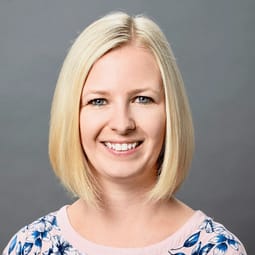
Debbie Silvester-Dean
Associate Professor, School of Molecular and Life Sciences, Curtin University, Perth, Australia
False

Associate Professor, School of Molecular and Life Sciences, Curtin University, Perth, Australia
Future of the field: In my field of electrochemical sensors for gases and explosives, I predict that in 20 years’ time there will be major technological advances in materials that will allow people to attach wearable electrochemical sensor devices directly to their clothing. They could use these wearable sensors to monitor local air pollution, or warn them of exposure to toxic gases in the workplace. Many electrodes are already beginning to be made on flexible substrates and even on cloth materials, and I believe it will take experts in chemistry, engineering and materials science to bring these types of sensing devices to the market for widespread use.
Misconceptions of science in Australia: One of the biggest misconceptions about science in Australasia, I believe, is on the issue of climate change. Despite the devastating bushfires that swept across Australia at the end of 2019/ beginning of 2020, many people still believe this occurred because of bad land management practices – for example, less controlled burn-offs leading up to fire season – and general variability in climate from year to year. However, the climate data overwhelmingly suggests that fire seasons will become longer and more intense due to increased carbon emissions from man-made sources – yet people are still reluctant to believe it.
Advice to younger self: Have more confidence and don’t be afraid of failure! Often, you come through school and don’t experience failure (at least, I can’t recall that I ever did). However, an academic job is a bit like an iceberg; 10 percent are the successes that go on your CV and 90 percent are the unsuccessful job applications, award nominations, grant proposals, rejected journal articles. I would advise my younger self to not give up and be dejected at failures – use it as a learning experience and move on to the next project, until you get that success that builds you up.
Receive the latest analytical scientist news, personalities, education, and career development – weekly to your inbox.

False
False
False